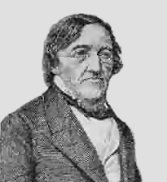|
2. 人类卵细胞的发现
|
|

|
|
卡尔·
厄尔 von
巴尔
Karl Ernst von Baer
(1792-1876)
|
|
|
卡尔·厄尔von
巴尔出生和卒于爱沙尼亚,但是在德国和俄国从事科学生涯,是一位享誉国际的科学家。他作为德国加里宁格勒大学的动物学和解剖学教授,研究哺乳动物的胚胎发育。在工作中,他于1826年发现了哺乳动物和人类的卵细胞,一年后他发表了他的发现。但是,他的同僚们没有完全领会到他的发现的重要性,由此使他的更多雄心研究规划没能实现。后来,他接受了位于彼得堡的科学研究院动物学家和解剖学家的职务,在那里,他还奠定了俄国的人类学和生态学学科基础。 |
|
Conception
- Historical
Notes
|
|
2.
Discovery of the Human Egg Cell
|
|
Karl Ernst von Baer was born and died in Estonia but made his career as a scientist in Germany and Russia. As a professor of zoology and anatomy at the German university of Königsberg (today Kaliningrad), he studied the embryonic development of mammals. In the course of this work, he discovered the mammalian and human egg cell in 1826 and then published his discovery one year later. However, his scientific colleagues did not fully comprehend the importance of his research, and thus some of his more ambitious projects remained unrealized. He later accepted a position as a zoologist and
anatomist at the Academy of Sciences in St. Petersburg, where he also laid the groundwork for the new fields of anthropological and ecological studies in Russia. He died in the country of his birth as an internationally renowned scientist. |